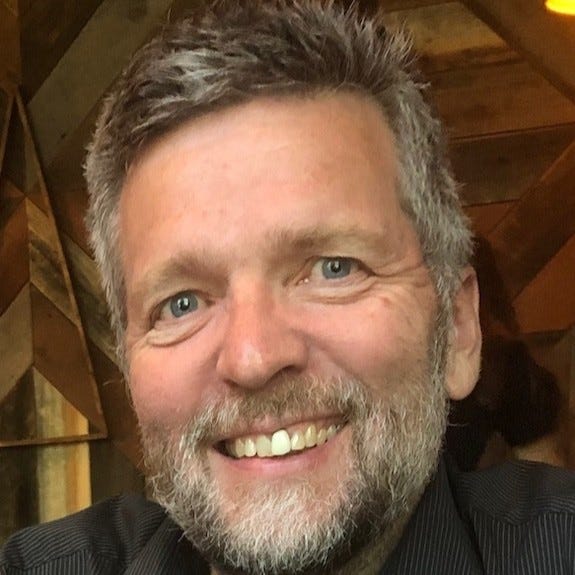
Earlier this year, leaders from Hawaii’s tourism, hospitality, and community sectors gathered with one shared understanding: tourism, as we’ve known it, cannot continue in its current form.
For anyone who knows me, you’ll know I wasn’t surprised. What did surprise me, and made me hopeful, is how clearly Hawaii is beginning to articulate a new vision. A vision that puts local communities and cultural integrity at the centre.
For years, tourism was measured by numbers: how many visitors arrived, how much they spent, how many nights they stayed. But those numbers don’t tell the full story. They don’t account for strained ecosystems, overworked locals, or cultures reduced to a caricature for the sake of guest satisfaction scores.
And now, as climate change challenges coastlines and as consumer expectations evolve, we're left to ask: what’s next?
What’s the alternative to mass tourism?
The alternative isn’t just smaller crowds, it’s a fundamentally different mindset.
Regenerative tourism is one path forward, gaining traction in Hawaii and other places with a long history of being “sold” to outsiders. Equally important is the broader framework of Meaningful Tourism — an approach that prioritizes mutual benefit for visitors, hosts, the environment, and the local economy. In the Meaningful Tourism paradigm, only tourism that benefits every stakeholder, from visitors to host communities, tourism businesses and tourism employees, government goals and the environment, can be sustainable.
Meaningful Tourism asks better questions:
Does this experience authentically connect the visitor to the destination?
Are locals, not just those employed in the tourism industry, but across the wider community, participating in the design and benefit of tourism?
Are we building long-term value instead of short-term volume?
When done right, it’s not a compromise, it’s progress. Practical, sustainable, long-term progress that everyone and everything benefits from.
How will climate change affect traditional vacations?
Climate change isn’t coming - it’s here. Beach destinations from the Maldives to Maui are already dealing with rising seas, coral bleaching, and increased storm intensity. Is Hawaii, with its layered exposure to environmental and economic risks, one of the canaries in the coal mine?
The days of “fly in, lie on the beach, fly out” vacations may be numbered. But that doesn’t mean travel is over. It means we need to build, develop, and deliver a smarter tourism product.
Travellers are increasingly drawn to experiences that feel resilient, responsible, and connected to something real. Destinations that get ahead of the curve, by integrating climate adaptation into infrastructure, shifting demand inland or even indoors, and spotlighting local climate wisdom, will be the ones that thrive.
Will tourists keep paying for faux cultural experiences?
Another question is, will locals want to deliver those experiences?
When I started my hospitality career in Norway in 1987, the hotel arranged a Norwegian “smorgasbord” every summer for American tourists. In short, it was a traditional type of buffet, usually only seen at Christmas, accompanied by folk dancing employees. During their breaks in the staff canteen, there was loud, non-stop complaining about the stupidity of pretending that this was how contemporary Norwegians lived. There was even more complaining about the stupidity of guests who mixed brown cheese with smoked salmon and scrambled eggs, topped with whipped cream and, sometimes, ketchup.
Here’s the good news: no, this will not last forever.
We stopped those old “traditional Norwegian” evenings decades ago. The internet breaks down cultural barriers, moves old traditions into museums, and allows cultures to showcase contemporary creativity to visitors.
The old model of packaged authenticity, like staged luaus or tourist-only folk dancing, feels increasingly dated, especially among younger, values-driven travellers. That doesn’t mean culture loses its place. In fact, the opposite is true: authentic, living culture is more valuable than ever.
In the language of Meaningful Tourism, it’s not about entertainment—it’s about connection.
Whether it's a small-group workshop, time spent with a local elder, or a hands-on conservation activity, travellers are seeking experiences that feel rooted, reciprocal, and respectful. They’re willing to pay for it when they know their money supports real people, real places, and real traditions.
How can tourism benefit more stakeholders?
For too long, tourism has succeeded at the expense of someone or something - be it the environment, a local culture, or underpaid staff. If we want a viable future, we need to design tourism that delivers shared value.
That means:
✅ Communities, not just those directly employed in tourism, having a voice in how tourism is designed and how benefits are shared.
✅ Employees treated as frontline ambassadors, not cost centers.
✅ Businesses prioritizing long-term resilience over short-term margins.
✅ Governments aligning tourism with broader economic and sustainability goals.
✅ Guests experiencing deeper, more meaningful travel - without the guilt.
It’s not a zero-sum game.
Tourism can support economic vitality, cultural pride, environmental health, and transformative guest experiences. But that means doing the hard work of redesign, not just recovering post-pandemic, but rethinking, redeveloping, and redeploying tourism initiatives from the ground up.
So... is tourism dead?
No, but the extractive, volume-based model that dominated the 20th century is on life support.
The future belongs to Meaningful Tourism. Travel that creates value for more people, not just for the tourism sector, but for the full range of those who live, work, and care for the places we visit.
Hawaii is not the only place asking these questions, but it’s one of the few brave enough to say out loud: This isn’t working anymore.
The rest of us should listen, and then act.
If you care about creating a safer, fairer, and more meaningful future for travel, consider subscribing.
Each week, I explore the real-world crossroads of hospitality, safety, sustainability, and global change with perspectives from people making it happen.
➡️ Subscribe to join the conversation—and share this post with someone rethinking tourism too.
More Info on the Meaningful Tourism Paradigm
The Meaningful Tourism Paradigm was developed by Prof. Dr. Wolfgang Arlt. starts from the insight that a sustainable tourism development can only be achieved by creating a holistic approach which provides and measures benefits and satisfaction by the way tourism is organised for all six major stakeholders of tourism and hospitality.
The six major stakeholders identified for tourism and hospitality are:
Travellers
Host communities
Employees in tourism and hospitality
Tourism and hospitality businesses
Governments on various levels and
Environment
Update from The Keg
No, I haven’t heard from Nick, but I did have a nice note from Michael, a Regional Director for Keg Restaurants. He was very understanding and apologetic when we chatted by phone. Long story short, there’s apparently a gift card in the mail. Depending on its value, he might have made our anniversary dinner choice a little easier this year. Or we might go there for a happy hour drink. Further updates to follow!

Hi! I’m Paul.
I was born, raised, and currently live in Canada. After high school, I embarked on a gap year in Europe. It lasted four decades. I went to university in Norway and started my hotel career in the basement of a five-star hotel in Oslo. The manager who hired me told me I was too old, too educated, and had too many opinions to be a security guard. He also told me that the only other person who applied for the job didn’t want it.
Thirty years later, I left that same company. It had grown from a small regional hotel chain with twenty-something hotels in Scandinavia to become a large, multi-brand hotel group with over a thousand hotels in almost one hundred countries.
Along the way, I moved from Norway to Denmark to Belgium. Before I left, the company awarded me their highest individual honour for leadership, and security professional peers selected me as the world’s most influential corporate security executive.
I’m a hospitality professional. I’m a security professional. If you ask, I will tell you that security was my job, and hospitality was my business.
Today, I’m an educator and a consultant passionate about hotels, hospitality, and keeping people safe during their travels.
In addition to the Always Care Community, I also write for Risk Resiliency’s Keep Travel Safe. If safe, secure hospitality, hotels, and travel are important to you, please subscribe to KTS!
Written with the clarity of hindsight, the accuracy of a faded memory, and countless creative liberties, the Always Care Community is a newsletter of how life has made me an emigrant, an immigrant, and gifted me experiences I never dreamed possible.
Thanks for reading. Your support is my motivation and I’m genuinely grateful that you’re here. Please share, subscribe, and connect with me.







Such an important discussion of meaningful tourism! As someone born and raised on Kaua'i, I've seen my island pushed to brink but unsustainable tourism practices that ignore the realities of our nature and community. Thank you so much for sharing, it's so important to change people's mindsets and attitudes towards the concept of travel.
As a 33 year resident and with over 20 years of public service, I am thrilled to see this shift. We shall see how the future of tourism unfolds, but the plan to ho’ihi da a’ina is positive. Imua.